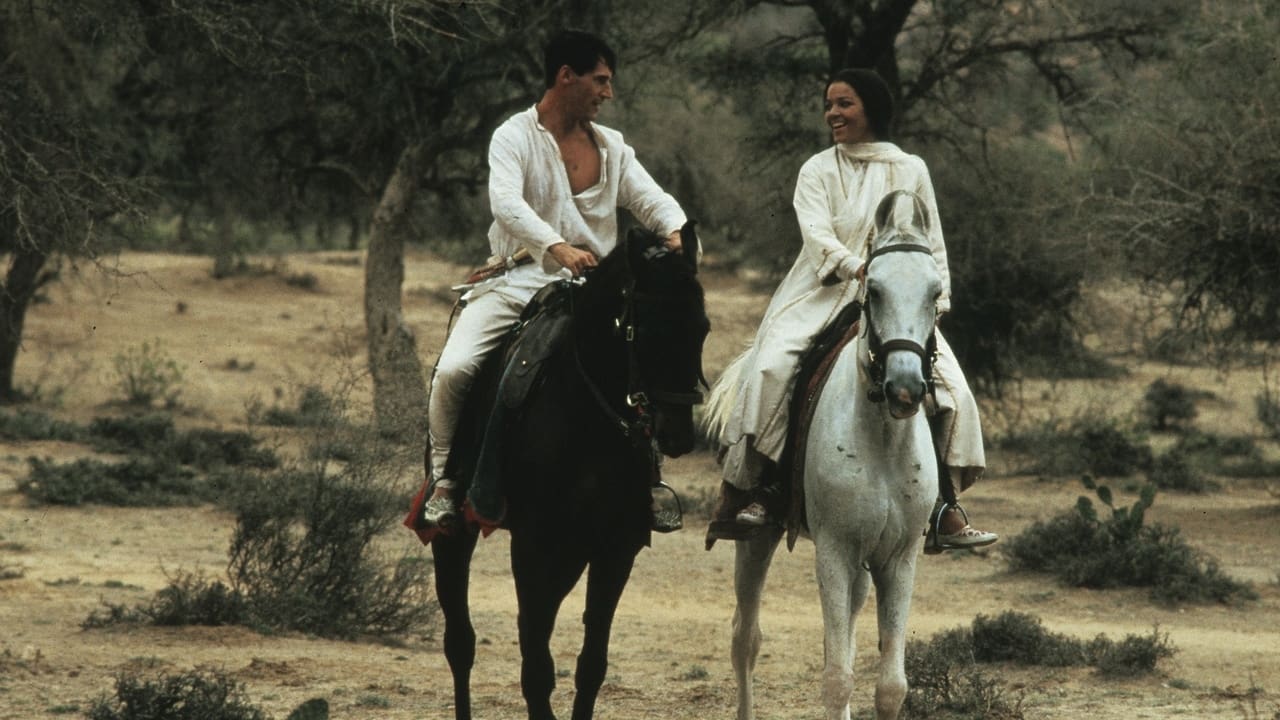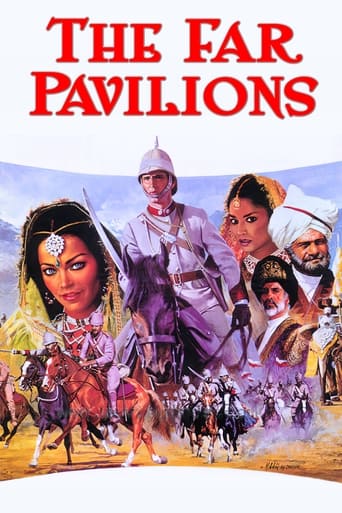Incannerax
What a waste of my time!!!
Jeanskynebu
the audience applauded
Huievest
Instead, you get a movie that's enjoyable enough, but leaves you feeling like it could have been much, much more.
Asad Almond
A clunky actioner with a handful of cool moments.
Armand
after years, basic virtue is flavor of this series. a mixture between love story and fascinated India, force of feelings and strong rules of a society, magnificent images and precise acting. it is an exercise to explore the nuances of impressions about India and it remains an inspired exercise. in same measure, it is a definition of East with the instruments of European vision. slices of magic, drama isles, a beautiful princess and a hansom knight, air of music and sacrifices. window to an universe, it is delicate and tender. romanticism is its key. and the heart of its shadow - flavor. a good option for a Sunday afternoon.
muzzi_123
This miniseries came hot on the heels of 'The Jewel in the Crown', 'A Passage to India' and a fascination with all things Indian.Ash (played by Ben Cross, best known for 'Chariots of Fire') and Wally (played by Benedict Taylor, who had featured in children's TV series 'Barriers') were the main players in this drama. Ash had been brought up to think of himself as Indian rather than officer class, and so falls in love with the sultry Anjuli (played by Amy Irving, at that time I think Mrs Steven Spielberg).it was not a bad plot and had some brilliant dialogs i would say good acting overall
stieric
I saw this one on television shortly after it was made, in the 80s, and I was happily surprised when it appeared on DVD. Like the book, the series doesn't have any deeply intellectual hidden layers (as far as I know), but it's a quality product in its kind and a great romantic story with some action too. The English are played by top English actors and the Subcontintent people by Indians or people who could more or less pass of for them, which is a nice change if you're used to seeing ancient Greeks or early Christians played by surf dudes. The odd one out seems to be blue-eyed Amy Irving as the Indian Princess Anjuli, but if you pay attention, you'll know she's supposed to be half-Russian in the series and she looks splendid in a saree anyway. Looking at British costume-dramas I often get the feeling that they enjoy making them even if it's only for the fun of walking up and down a muddy street in a silly 19th-century costume, and this movie has some of the same gusto. Throw in the breathtaking Rajastan scenery and you have a feast for the eyes.The Far Pavillions is not a series cut down in size to get a movie, but a miniseries, period. Like India itself, it takes its time. Don't expect to sit through it in one evening but relax, settle down with a chai or a whisky and who knows, you might find yourself watching the end credits at 3 AM anyway.
montrose77uk
I watched this film as a kid and thought it was excellent. I was living in the Sub-Continent at the time, and thought it portrayed life there very well.I'm still trying to get ahold of a copy of it to relive the experience once more.

